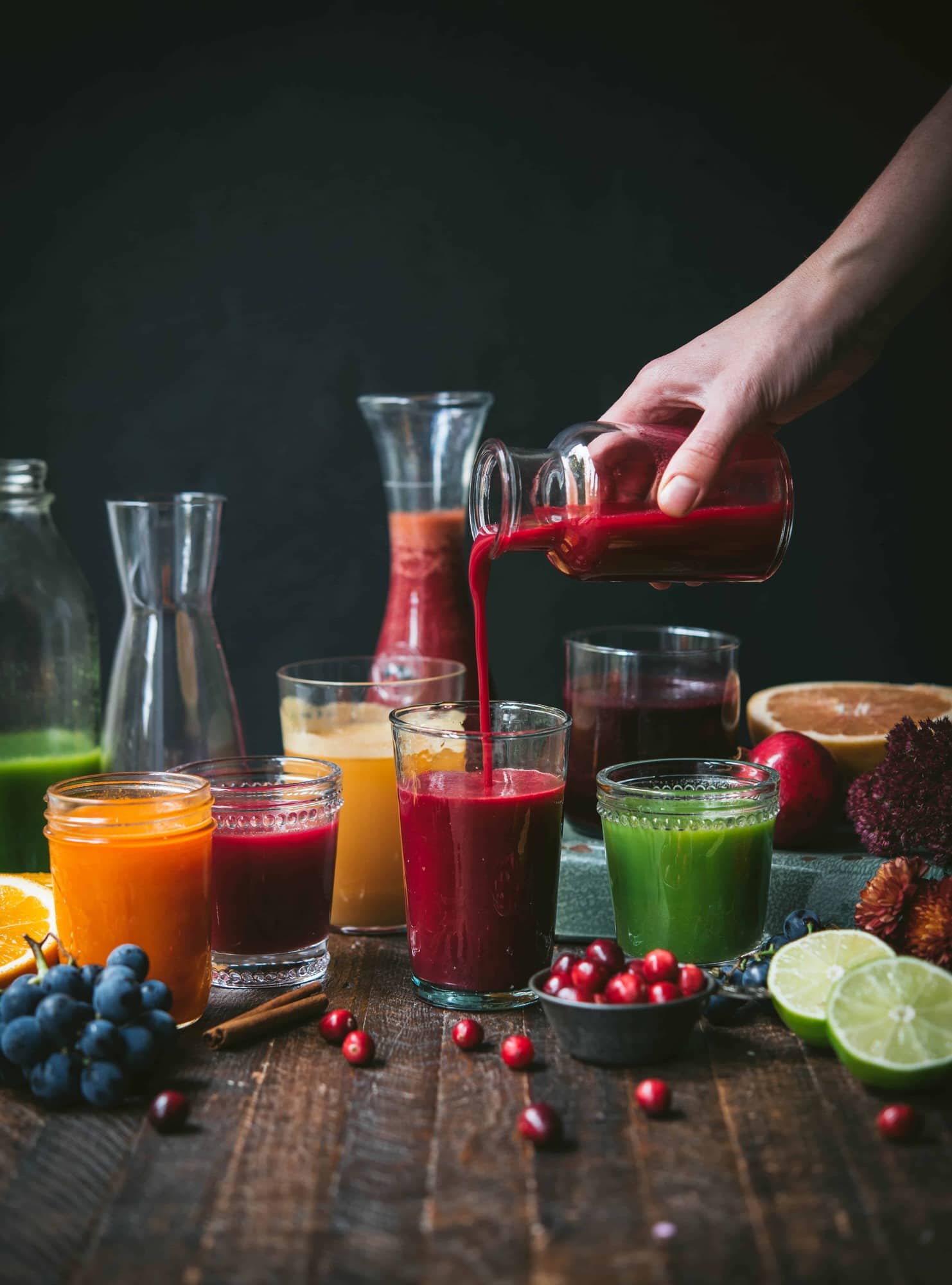It is a widely acknowledged fact that consuming a nutritious diet can aid in the sustenance of a healthy body mass index and mitigate the likelihood of enduring ailments such as cardiovascular disease and diabetes. However, a nutritionally complete and varied dietary regimen can also promote holistic wellness and enhance our physical and mental states. Peruse further to discover the myriad of advantages that a wholesome diet can bestow upon you, ranging from facilitating a sound slumber to enhancing the well-being of your epidermis.

It is a widely acknowledged fact that while individuals may have a preference for a particular facial cream or therapeutic regimen, the fundamental truth remains that the foundation for healthy and radiant skin is rooted in internal nourishment. The perpetual shedding and renewal of mature skin cells necessitates a consistent influx of vital nutrients to facilitate the process of skin turnover. Consuming a well-proportioned diet can effectively nourish your skin, thereby promoting its pliability, smoothness, and immaculate appearance.
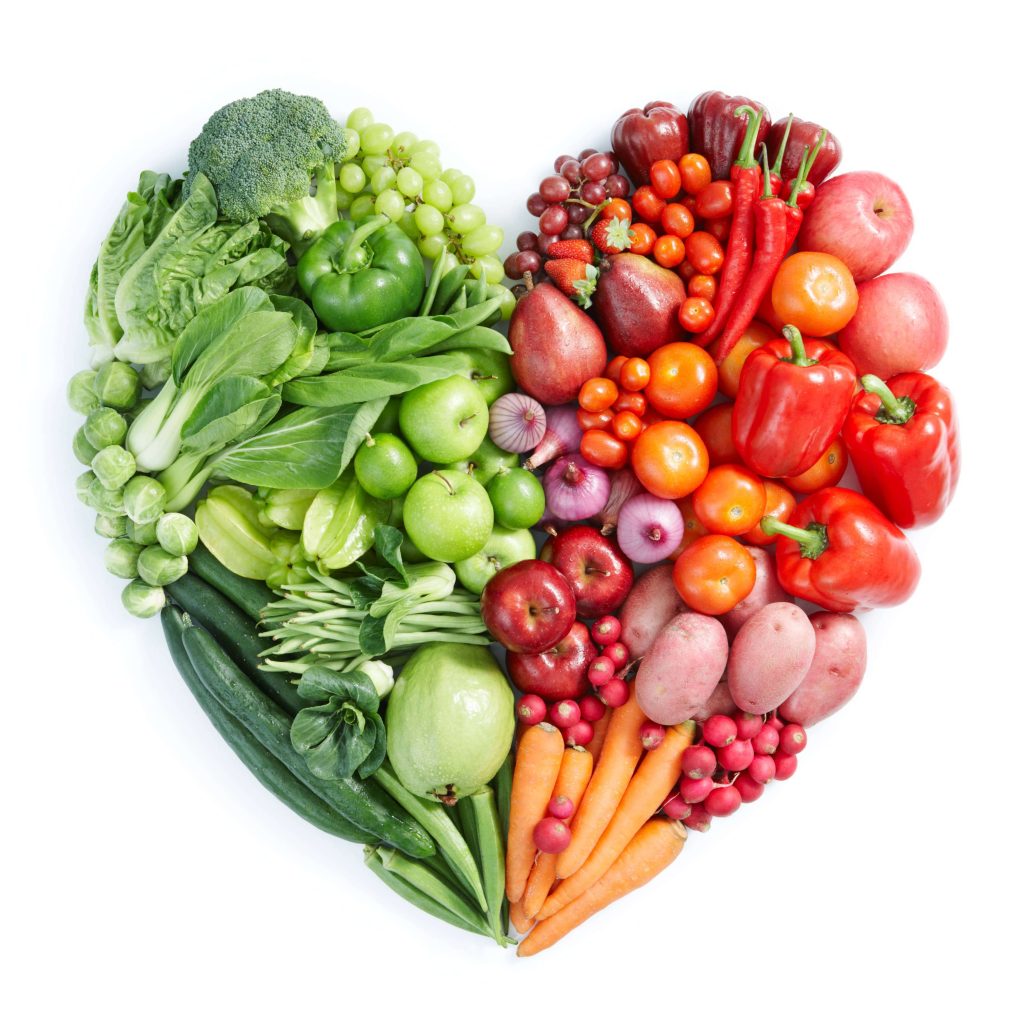 The inevitability of wrinkles and age spots is compounded by the deleterious effects of overexposure to ultraviolet radiation, tanning beds, abrasive cleansing agents, chemical irritants, and a suboptimal dietary regimen. To achieve optimal skin health, it is imperative to meticulously adjust your skincare regimen and make necessary modifications to your lifestyle while simultaneously optimizing your nutritional intake. This can be achieved by consuming a diverse and well-balanced diet that incorporates antioxidant-laden fruits and vegetables, healthy fats derived from oily fish and nuts, and sufficient hydration.
The inevitability of wrinkles and age spots is compounded by the deleterious effects of overexposure to ultraviolet radiation, tanning beds, abrasive cleansing agents, chemical irritants, and a suboptimal dietary regimen. To achieve optimal skin health, it is imperative to meticulously adjust your skincare regimen and make necessary modifications to your lifestyle while simultaneously optimizing your nutritional intake. This can be achieved by consuming a diverse and well-balanced diet that incorporates antioxidant-laden fruits and vegetables, healthy fats derived from oily fish and nuts, and sufficient hydration.
Every day, eat at least five servings of fruit and veggies
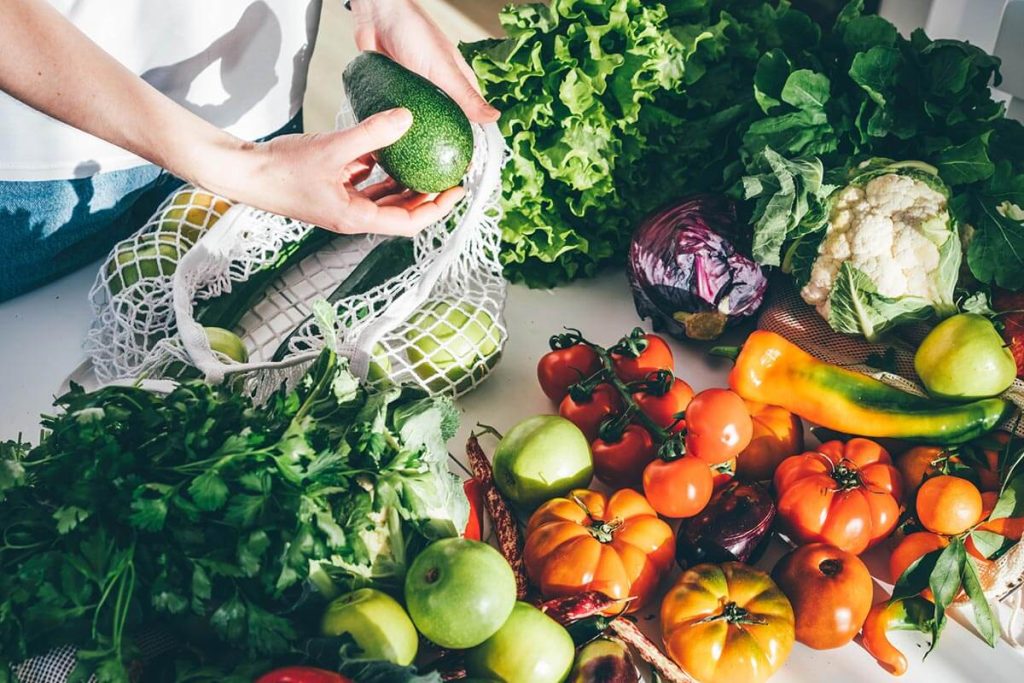 The consumption of fruits and vegetables is known to provide a significant source of antioxidants, which play a crucial role in safeguarding the skin against cellular harm induced by free radicals. The initiation of these free radicals can be instigated by various factors such as smoking, environmental pollution, and exposure to sunlight.
The consumption of fruits and vegetables is known to provide a significant source of antioxidants, which play a crucial role in safeguarding the skin against cellular harm induced by free radicals. The initiation of these free radicals can be instigated by various factors such as smoking, environmental pollution, and exposure to sunlight.
Incorporate a diverse array of vibrantly hued fruits and vegetables into your diet, with a goal of consuming no less than five servings per day. Beta-carotene and lutein, present in orange-hued fruits and vegetables like carrots, sweet potatoes, and pumpkins, as well as in leafy greens such as kale, papaya, and spinach, respectively, play a crucial role in fostering optimal skin cell development and promoting a healthy skin complexion.
Don’t crash diet
 The cyclical process of weight fluctuation can have deleterious effects on the integumentary system, manifesting as laxity, creases, and striae. It is not uncommon for crash diets to exhibit insufficiencies in vital nutrients such as vitamins and minerals. Prolonged adherence to this particular dietary regimen may manifest in cutaneous alterations.
The cyclical process of weight fluctuation can have deleterious effects on the integumentary system, manifesting as laxity, creases, and striae. It is not uncommon for crash diets to exhibit insufficiencies in vital nutrients such as vitamins and minerals. Prolonged adherence to this particular dietary regimen may manifest in cutaneous alterations.
Prior to embarking on a weight reduction regimen, it is imperative to conduct a thorough investigation of the pertinent information. It is advisable to peruse authoritative manuals on prevalent dietary regimens and scrutinize scientific literature on the factors that necessitate contemplation prior to commencing a diet.
The indulgence in smoking and immoderate alcohol consumption are two additional lifestyle factors that will inevitably exert a discernible influence on the visage and aesthetic of your integumentary system.
Vitamin C
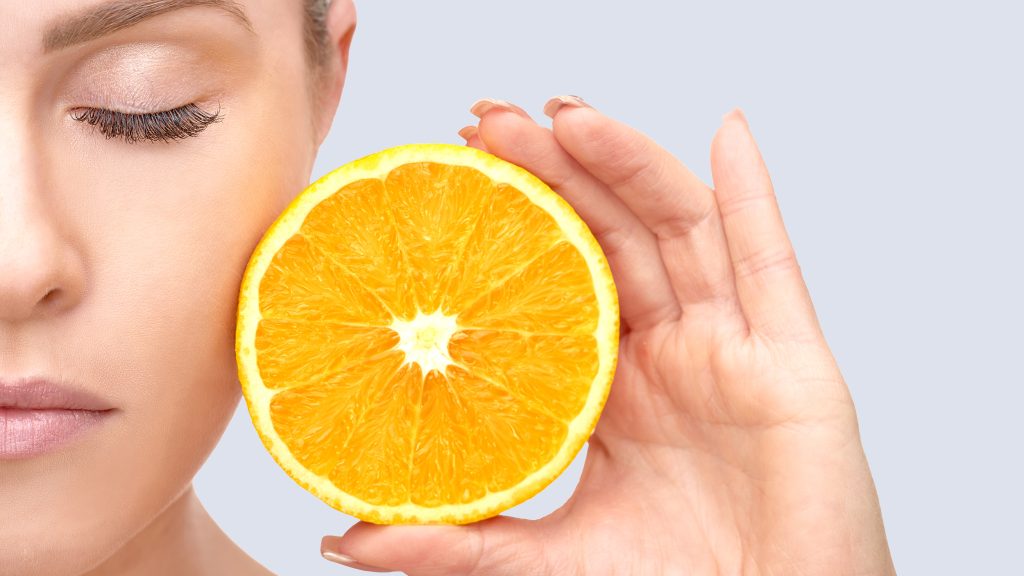
The acquisition of vitamin C is imperative in bolstering the immune system, fostering a resplendent complexion, and facilitating the amelioration of blemishes. The preeminent origins of nourishment are blackcurrants, blueberries, broccoli, guava, kiwi fruits, oranges, papaya, strawberries, and sweet potatoes.
Vitamin C plays a pivotal role in the biosynthesis of collagen, the structural protein that provides the framework for skin elasticity and resilience, as well as in the reinforcement of the microvasculature that facilitates cutaneous nourishment.
Healthy dose of vitamin E!
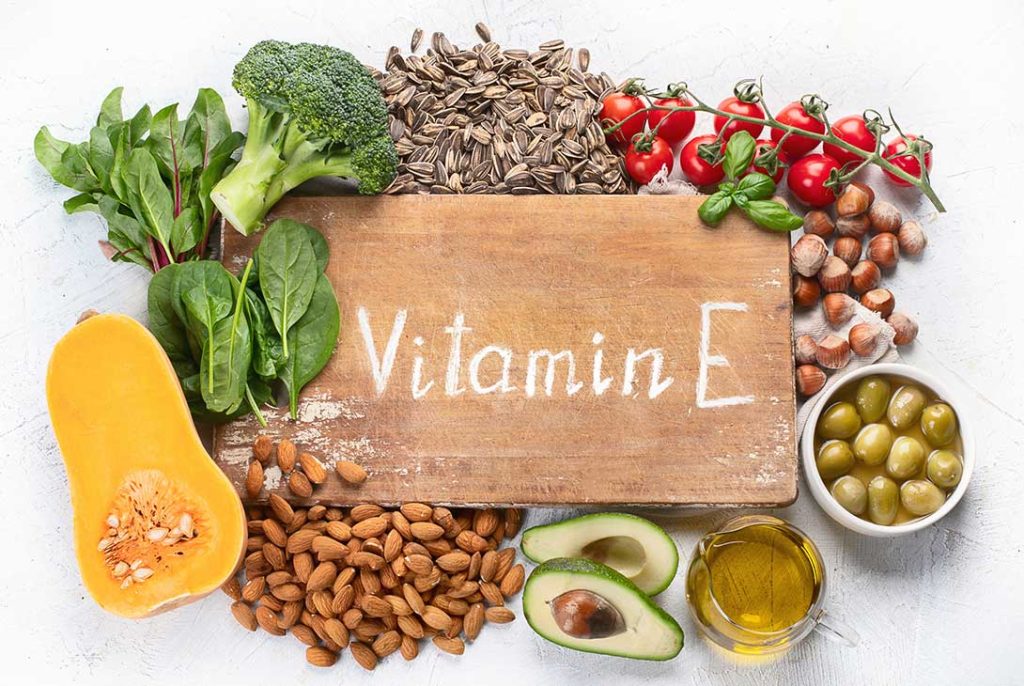 The pivotal function of Vitamin E lies in safeguarding the integumentary system against the detrimental effects of oxidative stress and photodamage. Nutrient-dense victuals that are abundant in vitamin E encompass almonds, avocados, hazelnuts, pine nuts, and oils derived from sunflower and pumpkin seeds.
The pivotal function of Vitamin E lies in safeguarding the integumentary system against the detrimental effects of oxidative stress and photodamage. Nutrient-dense victuals that are abundant in vitamin E encompass almonds, avocados, hazelnuts, pine nuts, and oils derived from sunflower and pumpkin seeds.
Daily dose of selenium!
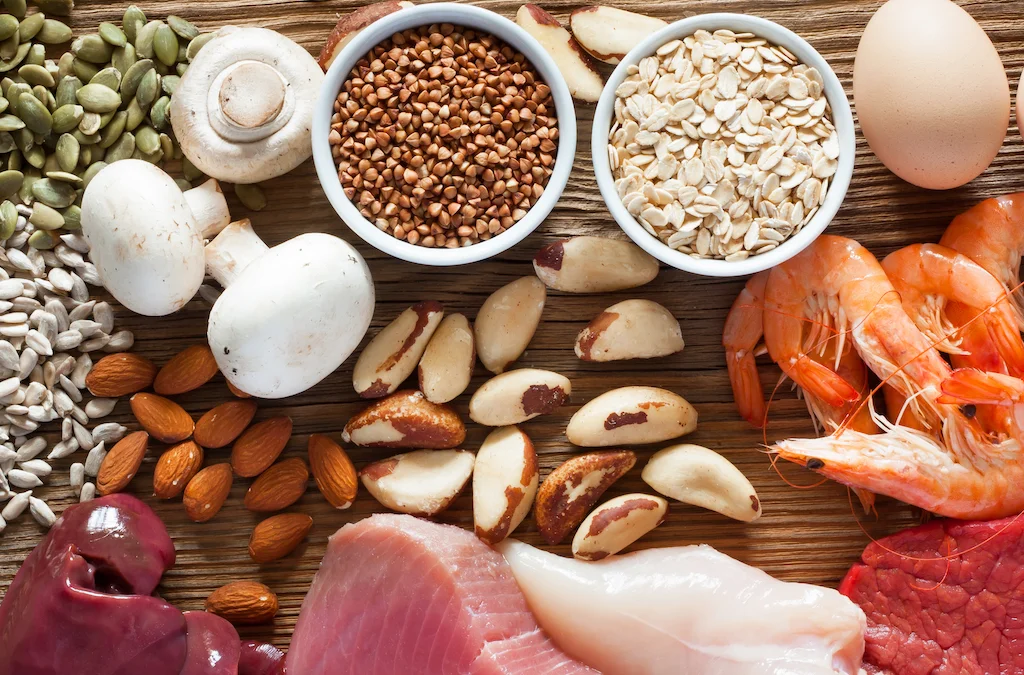 Selenium, a potent antioxidant, operates in conjunction with vitamins C and E. Research indicates that a diet abundant in selenium may potentially confer a protective effect against cutaneous malignancies, photodamage, and hyperpigmentation. An efficacious approach to enhance your dietary consumption is to incorporate Brazil nuts into your regimen. Merely a couple or trio of nuts shall furnish the prescribed diurnal quantity. One may consider incorporating Brazil nuts into their dietary regimen alongside other vitamin E-rich seeds, either as a snack or as a salad topping. Additional notable sources of this mineral encompass piscine and molluscan creatures, oviparous products, wheat embryo, as well as the botanical specimens of Solanum lycopersicum and Brassica oleracea.
Selenium, a potent antioxidant, operates in conjunction with vitamins C and E. Research indicates that a diet abundant in selenium may potentially confer a protective effect against cutaneous malignancies, photodamage, and hyperpigmentation. An efficacious approach to enhance your dietary consumption is to incorporate Brazil nuts into your regimen. Merely a couple or trio of nuts shall furnish the prescribed diurnal quantity. One may consider incorporating Brazil nuts into their dietary regimen alongside other vitamin E-rich seeds, either as a snack or as a salad topping. Additional notable sources of this mineral encompass piscine and molluscan creatures, oviparous products, wheat embryo, as well as the botanical specimens of Solanum lycopersicum and Brassica oleracea.
Choose low-GI carbs
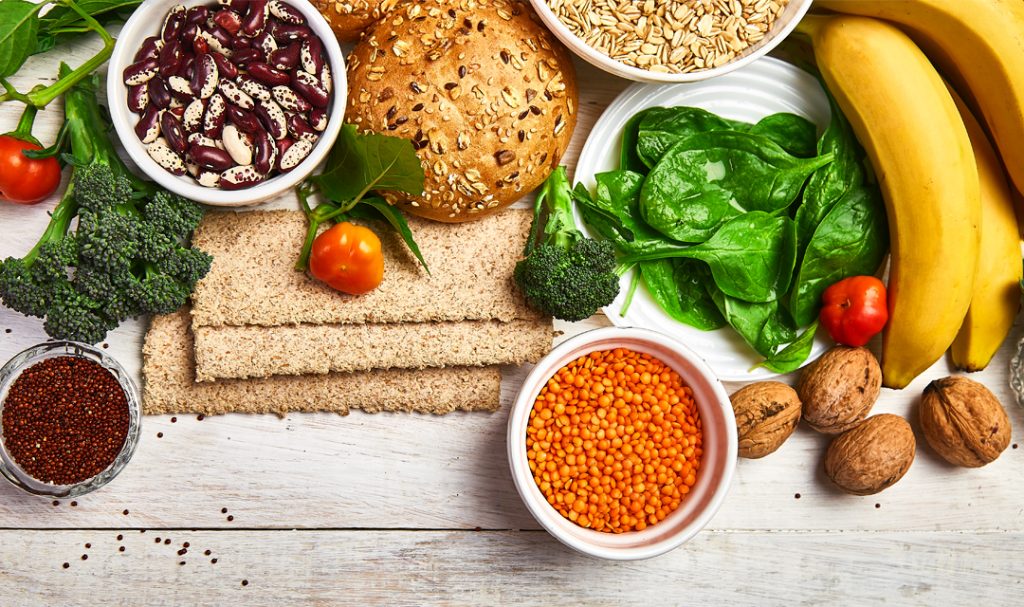 The glycaemic index (GI) is a metric that classifies foods containing carbohydrates based on their rate of glycemic response, or the speed at which they are metabolized into glucose within the body. It is advisable to consume a substantial amount of legumes, pulses, and oats, which are categorized as low glycemic index foods. These types of carbohydrates are known for their gradual release of energy. The gradual release of energy from these carbohydrates into the bloodstream results in a sustained supply of energy, inducing satiety and reducing the likelihood of indulging in snacks.
The glycaemic index (GI) is a metric that classifies foods containing carbohydrates based on their rate of glycemic response, or the speed at which they are metabolized into glucose within the body. It is advisable to consume a substantial amount of legumes, pulses, and oats, which are categorized as low glycemic index foods. These types of carbohydrates are known for their gradual release of energy. The gradual release of energy from these carbohydrates into the bloodstream results in a sustained supply of energy, inducing satiety and reducing the likelihood of indulging in snacks.
It is advisable to refrain from consuming high-glycemic index carbohydrates like sweetened beverages and biscuits, as they trigger insulin secretion, which can potentially harm collagen and expedite the formation of wrinkles.
Eat plenty of Zinc
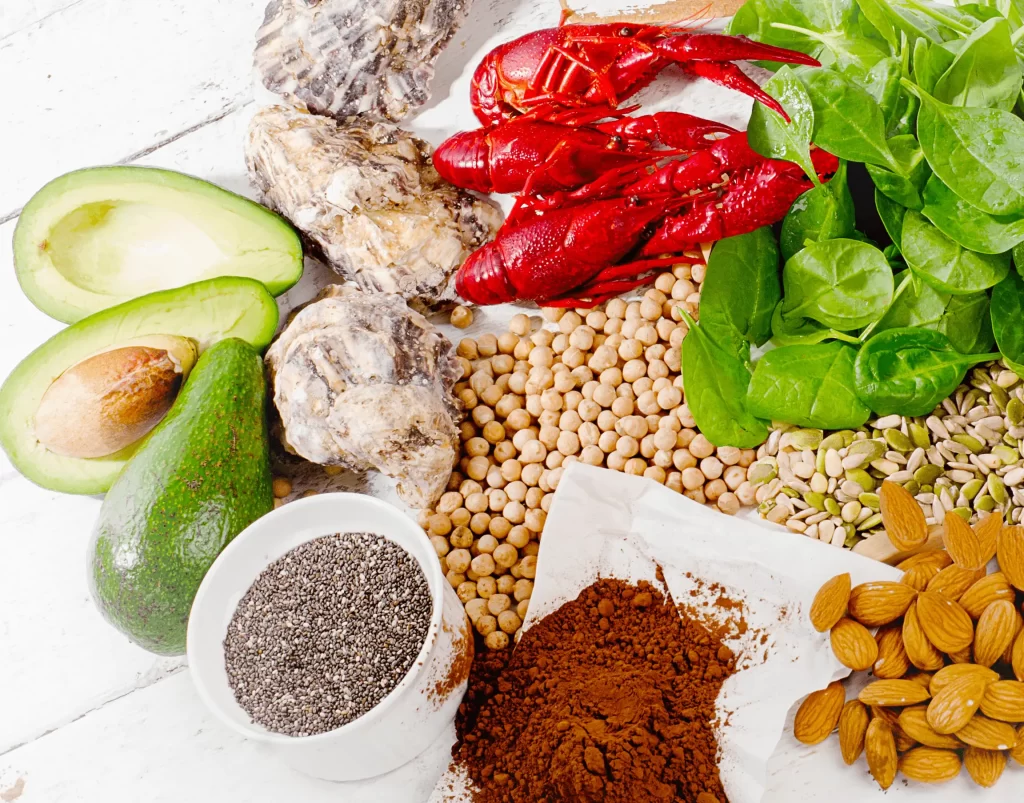 Zinc, a vital mineral, plays a crucial role in maintaining skin suppleness by facilitating the proper functioning of sebaceous glands responsible for oil production in the skin. Furthermore, it plays a crucial role in the regenerative process of the epidermis and facilitates the mending of cutaneous injuries. Foods that are abundant in zinc comprise of an array of options such as fish, lean red meat, wholegrains, poultry, nuts, seeds, and shellfish.
Zinc, a vital mineral, plays a crucial role in maintaining skin suppleness by facilitating the proper functioning of sebaceous glands responsible for oil production in the skin. Furthermore, it plays a crucial role in the regenerative process of the epidermis and facilitates the mending of cutaneous injuries. Foods that are abundant in zinc comprise of an array of options such as fish, lean red meat, wholegrains, poultry, nuts, seeds, and shellfish.
Include Healthy Fats
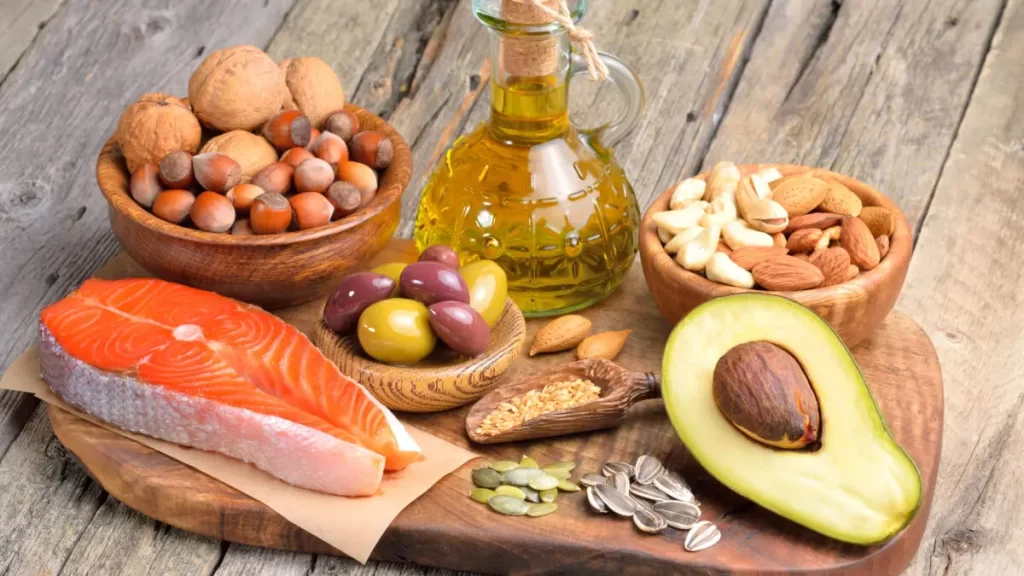 Several lipids function as an inherent emollient for your integumentary system, preserving its pliability intrinsically and enhancing its flexibility. The lipids in question encompass the monounsaturated and polyunsaturated iterations that are present in such comestibles as avocados, oily fish, as well as various nuts and seeds. The lipids in question are astutely enveloped with a substantial quantity of beneficial tocopherol, commonly known as vitamin E.
Several lipids function as an inherent emollient for your integumentary system, preserving its pliability intrinsically and enhancing its flexibility. The lipids in question encompass the monounsaturated and polyunsaturated iterations that are present in such comestibles as avocados, oily fish, as well as various nuts and seeds. The lipids in question are astutely enveloped with a substantial quantity of beneficial tocopherol, commonly known as vitamin E.
It is imperative to give due consideration to the dietary origins of polyunsaturated fats, particularly those of the omega-3 fatty acid variety. The anti-inflammatory properties of these particular fatty acids have been shown to potentially ameliorate dermatological conditions such as eczema and psoriasis. Furthermore, they constitute the fundamental components of a robust integumentary system.
Sources of omega-3 fatty acids can be found in piscine varieties such as salmon, trout, and sardines, as well as botanical sources including flaxseed, chia seeds, walnuts, and rapeseed oil.
Eat more Phyto-estrogens
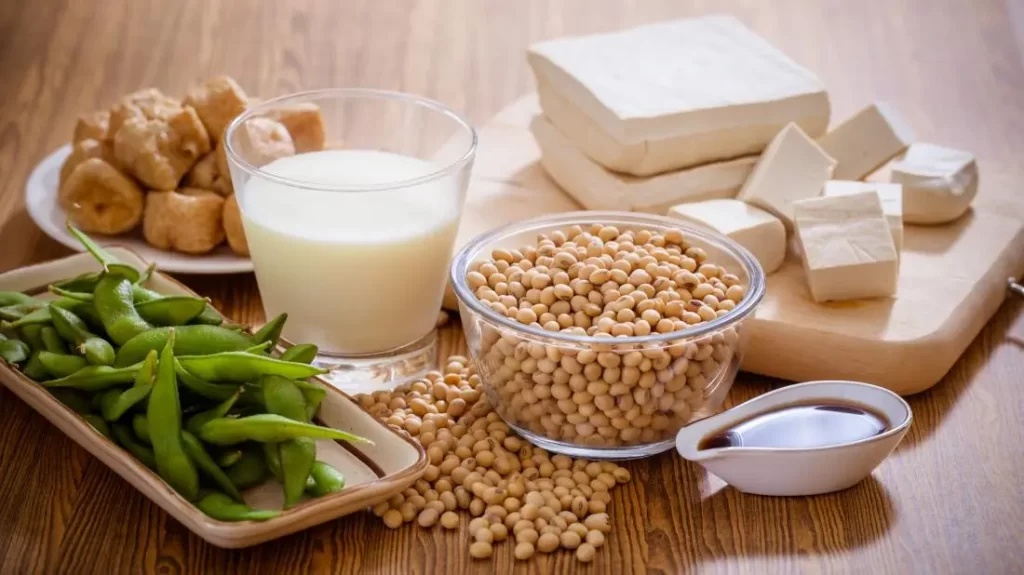 Phytoestrogens are naturally occurring chemical compounds that are present in various plant species. It is believed that phytoestrogens possess a structural resemblance to the female sex hormone oestrogen, thereby contributing to the maintenance of hormonal equilibrium within the human body. The significance of this matter lies in the pivotal role that oestrogen assumes in the maintenance of skin health, particularly in bolstering skin integrity and mitigating the deleterious effects of skin impairment.
Phytoestrogens are naturally occurring chemical compounds that are present in various plant species. It is believed that phytoestrogens possess a structural resemblance to the female sex hormone oestrogen, thereby contributing to the maintenance of hormonal equilibrium within the human body. The significance of this matter lies in the pivotal role that oestrogen assumes in the maintenance of skin health, particularly in bolstering skin integrity and mitigating the deleterious effects of skin impairment.
Diverse variants of plant-based estrogen, namely isoflavones present in soy-based products like tofu and tempeh, and lignans found in the fiber of whole grains, fruits, vegetables, and flaxseed, exist.
Consume six to eight glasses of water on a daily basis
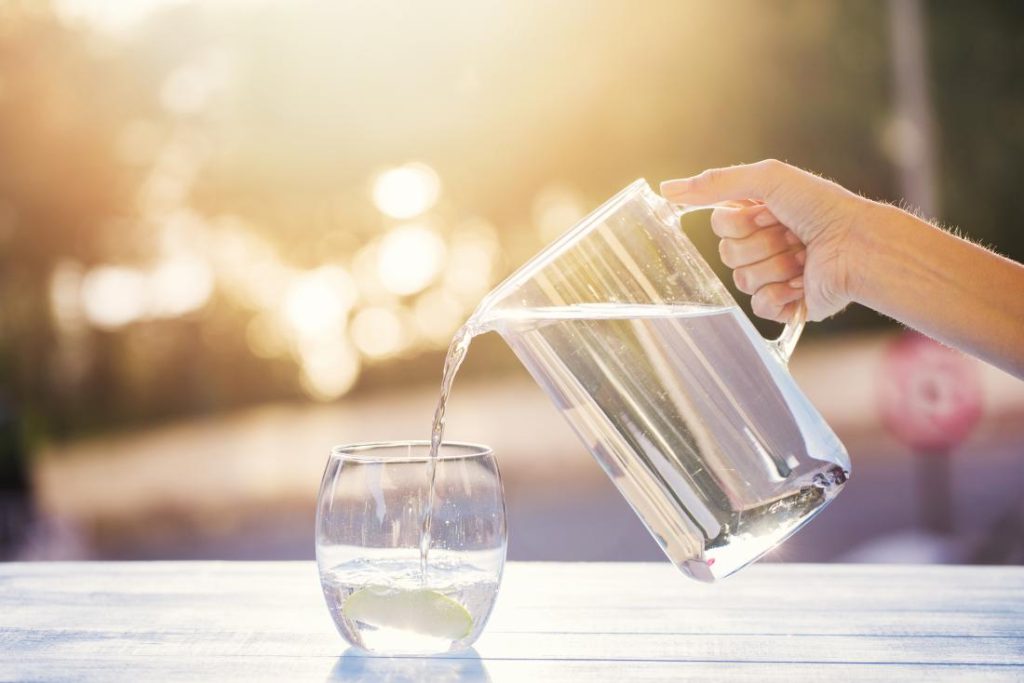 The epidermis necessitates hydration in order to maintain its pliability. Even a slight state of dehydration can result in the appearance of dry, fatigued, and somewhat lackluster skin. According to expert opinion, it is advisable to consume six to eight glasses of water on a daily basis. All aqueous solutions contribute to your diurnal quota, however, H2O is the optimal choice.
The epidermis necessitates hydration in order to maintain its pliability. Even a slight state of dehydration can result in the appearance of dry, fatigued, and somewhat lackluster skin. According to expert opinion, it is advisable to consume six to eight glasses of water on a daily basis. All aqueous solutions contribute to your diurnal quota, however, H2O is the optimal choice.
 For those who are employed in a professional setting, it is recommended to maintain a sizable receptacle of H2O on one’s workstation as a visual cue to imbibe fluids throughout the day. Herbal teas that are devoid of caffeine are also a commendable option. It is imperative to bear in mind that certain fruits and vegetables, namely watermelon, courgette, and cucumber, possess the ability to provide fluids to the body. Furthermore, the minerals present in these fruits and vegetables expedite the process of hydration, thereby enhancing the overall health of the body and skin.
For those who are employed in a professional setting, it is recommended to maintain a sizable receptacle of H2O on one’s workstation as a visual cue to imbibe fluids throughout the day. Herbal teas that are devoid of caffeine are also a commendable option. It is imperative to bear in mind that certain fruits and vegetables, namely watermelon, courgette, and cucumber, possess the ability to provide fluids to the body. Furthermore, the minerals present in these fruits and vegetables expedite the process of hydration, thereby enhancing the overall health of the body and skin.



